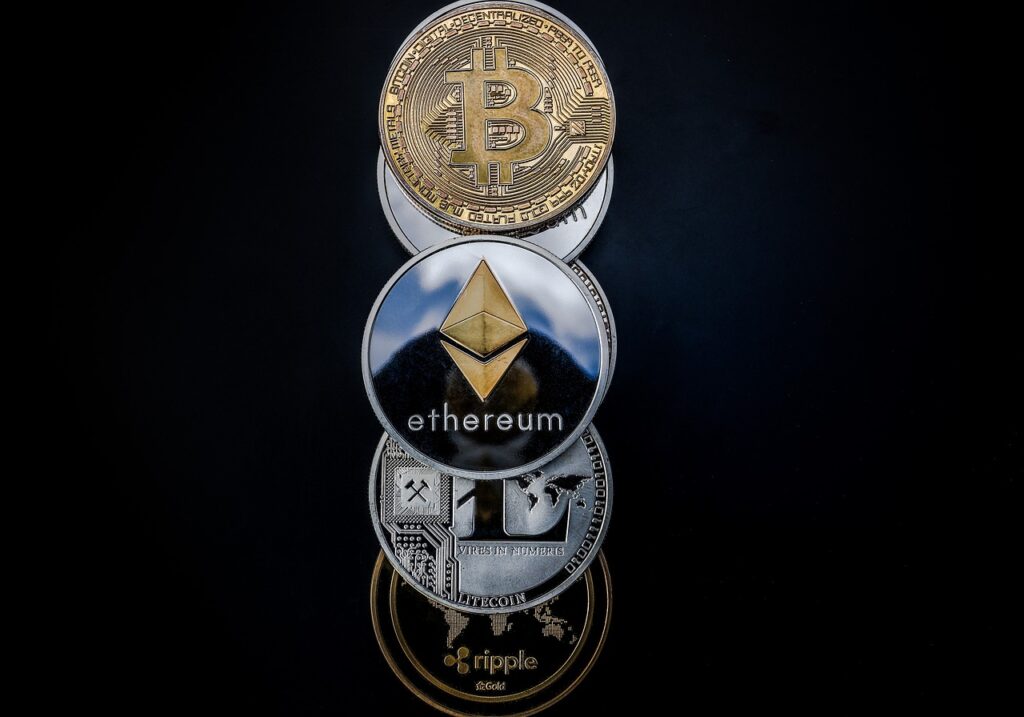
The cryptocurrency landscape has evolved dramatically since Bitcoin’s inception in 2009. While Bitcoin remains the most popular and valuable digital currency, the rise of alternative coins, or “altcoins,” has diversified the investment opportunities within the market. This article delves into the differences between Bitcoin and altcoins, exploring their respective roles and potential futures in the cryptocurrency investment space.
The Rise of Bitcoin: Pioneer of Cryptocurrencies
Bitcoin, introduced by the pseudonymous Satoshi Nakamoto, was the first cryptocurrency, designed as a decentralized digital currency and a solution to the double-spending problem. It operates on a peer-to-peer network, allowing transactions without the need for an intermediary. Bitcoin’s blockchain technology ensures transparency and security, which have been key to its success.
Bitcoin’s Dominance
Despite the emergence of thousands of altcoins, Bitcoin has maintained its dominance in the cryptocurrency market. It is often referred to as “digital gold” due to its limited supply of 21 million coins, scarcity, and role as a store of value. Bitcoin’s market capitalization still far exceeds that of any other cryptocurrency, and it serves as a benchmark for the industry.
Adoption and Institutional Interest
Bitcoin has experienced increasing adoption among individuals and institutions alike. Major companies like Tesla and MicroStrategy have invested in Bitcoin, and financial institutions have begun offering Bitcoin-related services. This institutional interest has bolstered Bitcoin’s credibility and contributed to its price appreciation.
The Emergence of Altcoins: Diversifying the Crypto Space
While Bitcoin laid the foundation for digital currencies, altcoins have emerged to address various limitations and explore new possibilities. Altcoins are cryptocurrencies other than Bitcoin, and they encompass a wide range of technologies and use cases.
Diversification and Innovation
Altcoins offer diversification opportunities for investors looking to explore beyond Bitcoin. They often feature different consensus mechanisms, smart contract capabilities, and unique applications. For example, Ethereum introduced smart contracts, allowing for decentralized applications (dApps) and contributing to the rise of decentralized finance (DeFi).
Types of Altcoins
1. **Stablecoins**: These are pegged to traditional currencies or assets to minimize volatility, making them useful for transactions and as a store of value. Examples include Tether (USDT) and USD Coin (USDC).
2. **Utility Tokens**: Used within specific platforms to access services or goods. Binance Coin (BNB) and Chainlink (LINK) are examples.
3. **Security Tokens**: Represent ownership in an asset, similar to traditional securities. These require regulatory compliance and are seen as a bridge between traditional finance and digital assets.
4. **Privacy Coins**: Designed to enhance transaction anonymity. Monero (XMR) and Zcash (ZEC) are notable examples.
Bitcoin vs Altcoins: Investment Considerations
Investors often grapple with the decision of whether to invest in Bitcoin or altcoins, each presenting distinct advantages and challenges.
Volatility and Risk
Cryptocurrencies are known for their volatility, and while Bitcoin is no exception, altcoins often exhibit even greater price swings. This increased volatility can offer higher returns but also poses higher risks. Investors should assess their risk tolerance and investment horizon when considering altcoins.
Market Maturity
Bitcoin is the most mature cryptocurrency, with established infrastructure, widespread recognition, and a proven track record. Altcoins, on the other hand, vary significantly in terms of technological maturity, adoption, and market capitalization. Many altcoins have experienced rapid growth, but they also face challenges related to scalability, security, and regulatory scrutiny.
Innovation and Potential
Altcoins often incorporate innovative features and address specific use cases. For instance, Ethereum’s smart contracts enable a wide range of decentralized applications, while Cardano focuses on scalability and sustainability. Investors interested in the technology behind cryptocurrencies may find altcoins appealing for their potential to revolutionize industries.
Network Effects and Adoption
Bitcoin benefits from strong network effects, with a large user base, high liquidity, and widespread acceptance as a store of value. Altcoins, while gaining traction, often face the challenge of achieving similar adoption levels. However, some altcoins have carved out niches and attracted dedicated communities, contributing to their growth.
The Future of Cryptocurrency Investments
The future of cryptocurrency investments will likely be shaped by technological advancements, regulatory developments, and evolving investor preferences. Both Bitcoin and altcoins have roles to play in this dynamic landscape.
Bitcoin’s Role
Bitcoin is expected to maintain its status as a store of value and a hedge against inflation. Its increasing institutional adoption and integration into traditional financial systems may further solidify its position. However, Bitcoin’s scalability issues and energy consumption remain areas of concern that may influence its long-term prospects.
The Evolving Altcoin Landscape
Altcoins will continue to drive innovation and experimentation within the cryptocurrency space. Projects focusing on scalability, interoperability, and sustainability are likely to gain prominence. Regulatory clarity will be crucial for altcoins, particularly those functioning as securities or financial products.
Decentralized Finance (DeFi) and Non-Fungible Tokens (NFTs)
DeFi and NFTs have emerged as significant trends within the altcoin ecosystem. DeFi platforms offer decentralized financial services, while NFTs enable digital ownership of art, collectibles, and more. These areas represent promising investment opportunities but also come with unique risks and regulatory challenges.
Regulatory Developments
Regulation will play a critical role in shaping the future of cryptocurrency investments. Governments worldwide are increasingly focusing on establishing clear frameworks to ensure consumer protection, prevent fraud, and address concerns related to money laundering and terrorism financing. The outcome of these regulatory efforts will impact both Bitcoin and altcoins.
Conclusion
The debate between Bitcoin and altcoins is not merely a question of which is better but rather how they complement each other in the cryptocurrency ecosystem. Bitcoin provides stability and a proven store of value, while altcoins offer diversification and innovation. Investors should carefully consider their investment goals, risk tolerance, and the evolving landscape when deciding which cryptocurrencies to include in their portfolios. As the cryptocurrency market continues to mature, both Bitcoin and altcoins will play essential roles in shaping the future of digital finance.
“`
#ChatGPT assisted in the creation of this article.






